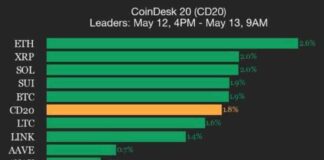Kucoin, a popular cryptocurrency exchange, recently announced that Nigerian users will now be subjected to a 7.5% value-added tax (VAT) on all transactions starting July 8th. This decision was made following a regulatory update from the Nigerian Securities and Exchange Commission (SEC).
The Nigerian SEC has been taking steps to regulate the cryptocurrency industry in the country. Just last month, they issued a directive requiring all crypto exchanges and businesses to re-register or face enforcement action. This move by Kucoin to impose a VAT on transactions could be seen as a response to the SEC’s efforts to bring more oversight to the crypto sector.
It’s worth noting that this new tax is a step towards the Nigerian government’s goal of regulating cryptocurrencies. Three years ago, the Central Bank of Nigeria instructed banks to cease all transactions involving cryptocurrencies, whether for personal or business use. Now, with the introduction of this VAT, it seems that the SEC is taking a more proactive approach to monitoring and controlling crypto activities in the country.
Although the SEC Chairman, Emomotimi Agama, has not made any public statements regarding this new tax, it is clear that the regulator is moving towards implementing stricter regulations for the crypto industry. This VAT could be just the beginning of a series of measures aimed at bringing more transparency and accountability to the sector.
The Nigerian government had previously attempted to impose a 10% levy on crypto transactions through the 2023 Finance Act, but enforcement was hindered by regulatory challenges. With the SEC now taking a more assertive stance on regulating cryptocurrencies, it remains to be seen how this new tax will be received by Nigerian users and whether it will have the desired effect of bringing more order to the crypto market.
Overall, the introduction of a 7.5% VAT on Kucoin transactions for Nigerian users marks a significant development in the country’s efforts to regulate the cryptocurrency industry. As the SEC continues to assert its authority over the sector, it is likely that we will see more changes and updates in the coming months as Nigeria navigates the complex landscape of digital assets and blockchain technology.














